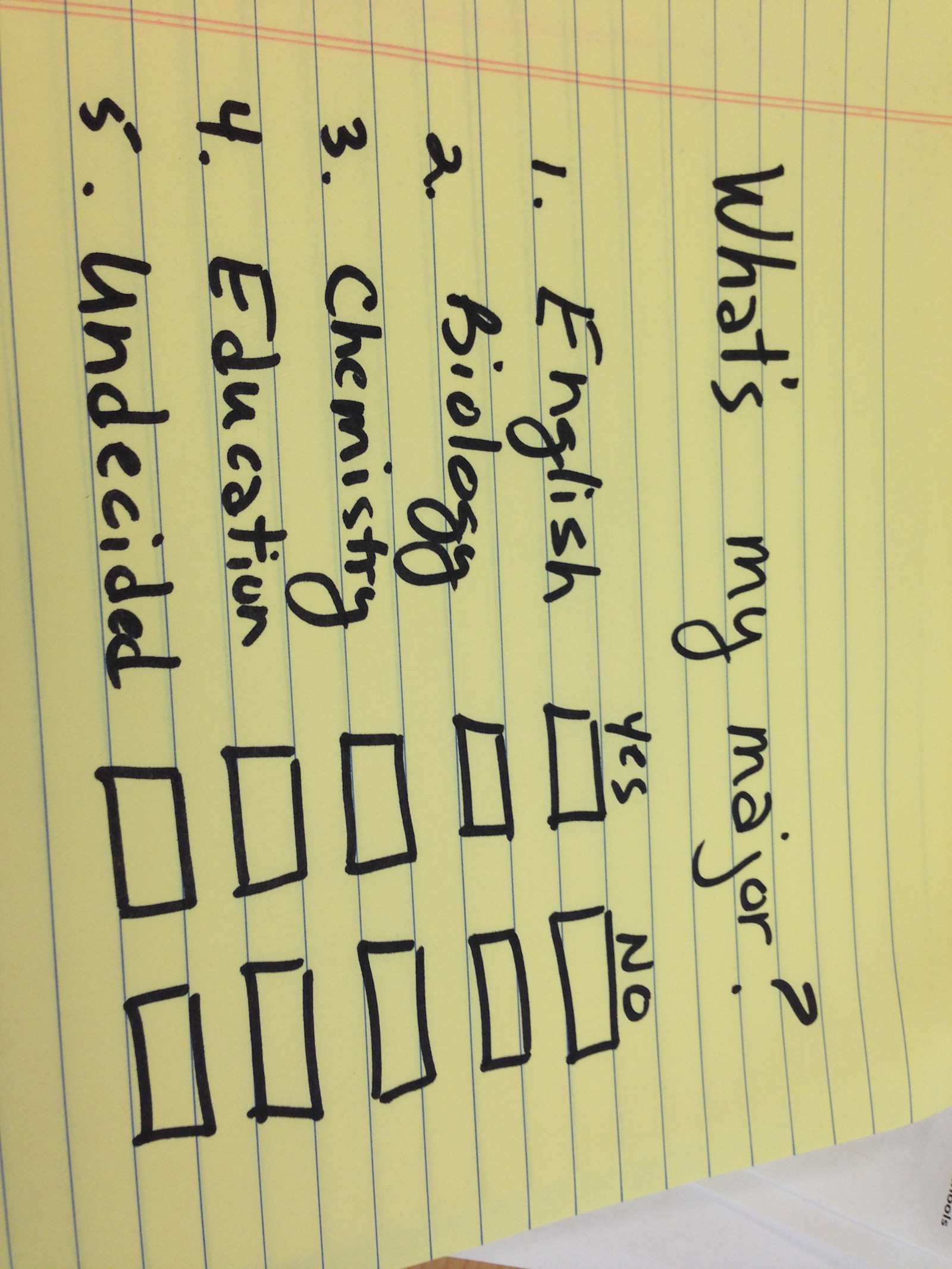College Counselor: Don't rush to decide on a major

Q: I am a high school senior. The only thing I know about college is that I want to double-major and eventually get a degree for secondary education. However, I have many interests so I'm unsure what to major in. I love English, biology, and chemistry, but mostly psychology. I am hoping to travel in summers and help kids across the country. I need a degree that will help me do that! Thank you!
A: You are in luck, although you might not realize it now. It seems as though you may be confronted with difficult decisions, but quite the contrary: your future lies before you like a treasure map, but instead of just one treasure, there are many! You have a lot of options.
If you wish to graduate with a certification in teaching, that will narrow your course-taking options a bit. You will have to do student teaching, and that may prevent you from taking some on-campus courses that are offered at the same time. If you decide to teach English, you'll have to major in English. If you wish to teach biology, you'll major in biology. You would do your student teaching in one of those areas; but being a double-major and then doing student teaching may limit the extra time you have for exploring other subjects. This is something you will go over with an academic advisor once you get to your chosen campus.
But in general, here is the beauty of our college system: you do not have to decide right away on a major.
Most schools give students until the end of their second year of university study to declare a major. This gives you some time to explore different areas and really think about what you want to do.
Here's another thing: your choice of undergraduate major does not have to affect the course of the rest of your life! It will give you a grounding, a basis upon which to build. Choose what you love best—but you don't have to choose now.
What really matters is the skill set you acquire in college: the ability to synthesize the materials you read, the ability to connect information and ideas from one area to another, the ability to write well and clearly, the ability to do research, the ability to discern fact from opinion, the ability to form your own opinions and defend them cogently.
Most colleges have summer programs and connections to additional programs. They involve summer study, travel, volunteer opportunities or a combination of all. You can spend your summer helping children in so many places: inner cities, Native American reservations, or underprivileged areas in other countries. I know that college activities offices will welcome someone with your many interests and a desire to serve!
Professors, too, know that many students enter college unsure of exactly what they wish to study. They love this! It means they can devote their efforts to inspiring students to major in their fields. Being "unsure" or "undecided" can actually be better than coming into college with one's mind made up and an unswerving attitude about what to study.
Be flexible. Be open. And have fun!
Please Post Comments